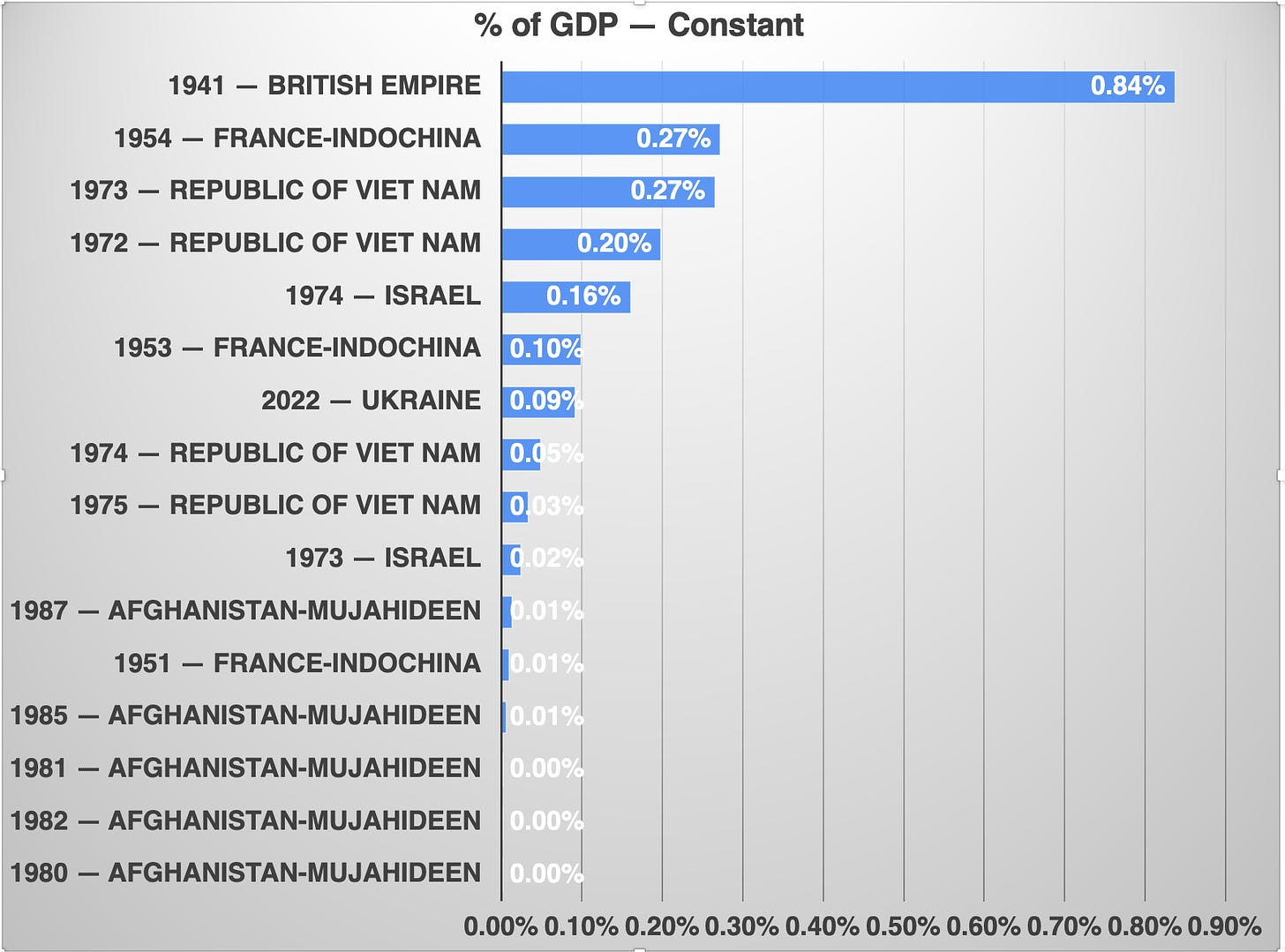A Surprising Comparison of Ukraine War Funding
This deal looks a lot better than prior American war funding efforts
Joshua Trevino on the Ukraine funding numbers crunch:
Next, let's look at American aid to each of these recipients, in constant-dollar terms, as a proportion of total U.S. gross domestic product.
This gives us a very different picture. None of the examples crack one percent of the total American economy in their given year, in constant dollars. Aid to Bri…
Keep reading with a 7-day free trial
Subscribe to The Transom to keep reading this post and get 7 days of free access to the full post archives.



